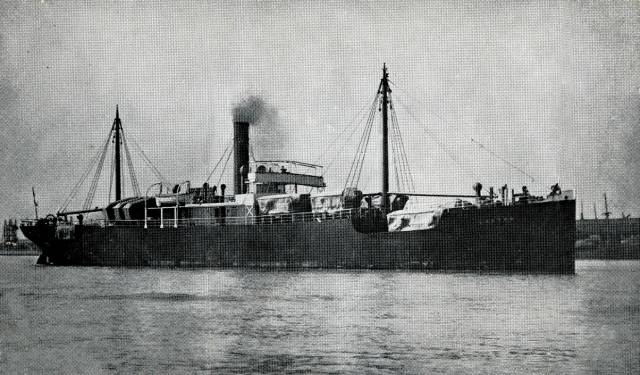#Exhibition - A new permanent display commemorating the gun-running ship Aud opened recently on Spike Island, Cork Harbour.
The exhibition writes East Cork Journal honours the men and crew of the German vessel which was scuttled in the harbour in 1916.
The German crew were attempting to deliver weapons as part of the preparations for the Easter Rising, when the ship was trapped by a blockade of British ships.
9 April: SS Libau masquerading as the SS Aud under the command of Karl Spindler set sail for Tralee bay. Under Spindler was a crew of 22 men. The vessel was laden with an estimated 20,000 riffles, 1 million rounds of ammunition, 10 machine guns and explosives.
While the vessel was at sea the meeting date had changed to the 23 April.
20 April: The Libau / Aud arrived in Tralee bay unaware of the change of date. The crew were to Rendezvous with Roger Casement who was landed close by, by a German u-boat.
The ship was spotted by a blockade of British ships and escorted towards Cork Harbour.
22 April: At exactly 6:30pm the crew scuttled the ship outside Cork Harbour.
If the meeting had gone as originally planned and the Irish kept their side of the agreement history may have been rewritten.
The exhibition is supported by the Department of Arts, Heritage, Regional, Rural and Gealtacht affairs.































































